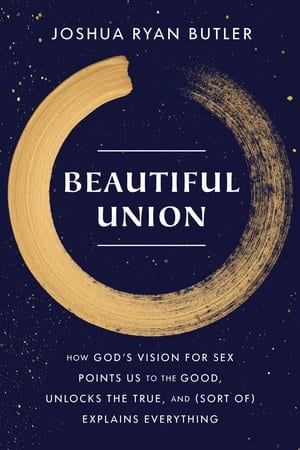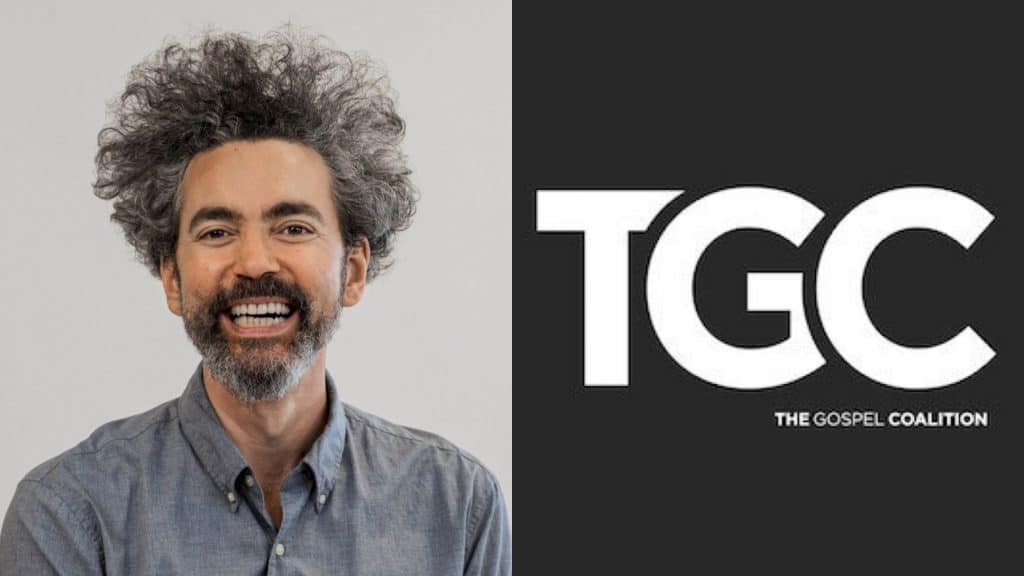In the wake of growing controversy, evangelical Reformed parachurch group The Gospel Coalition (TGC) has retracted an article that used explicit sexual language as a metaphor for salvation. However, some say the retraction does not address underlying issues of concern.
The article published on March 1 compared the act of sexual consummation with the spiritual work of Christ. Arizona pastor Josh Butler, excerpting from his upcoming book Beautiful Union, wrote in part that “the fusing of two bodies as one . . . is a picture of the gospel.”
One passage described when “the groom goes into his bride” in explicit terms, referring to the “sanctuary of his spouse,” where the groom “ bestows an offering, a gift.” Butler continued the metaphor, saying the wife “gladly receives the warmth of his presence . . . Similarly, the church embraces Christ in salvation. . .”
Many evangelical observers reacted swiftly.
“They do know, right, that the idea of women as a fertile field to be planted with male sperm is not only misogynist but inaccurate? Don’t they????” tweeted author and Baylor University Professor Beth Allison Barr.
Your tax-deductible gift helps our journalists report the truth and hold Christian leaders and organizations accountable. Give a gift of $30 or more to The Roys Report this month, and you will receive a copy of “Hurt and Healed by the Church” by Ryan George. To donate, click here.
Christian crisis counselor Will Soto stated: “You can be dehumanizing, inappropriate, and objectifying towards women while using poetic, ‘spiritual,’ and seemingly non-offensive language.”
Author Kristin Du Mez called out TGC Senior Editor Brett McCracken for publishing Butler’s article and also calling Butler’s upcoming book a “magnum opus on sexual ethics.” She also criticized Multnomah for publishing the book. “(T)his is exactly what happens when you put a No Girls Allowed sign on your ‘gospel coalition,’” she tweeted.
It’s not just that the guy wrote those things, but another guy decided to publish it, & another guy thought it should be a book, & another guy said not just a book a MAGNUM OPUS & this is exactly what happens when you put a No Girls Allowed sign on your “gospel coalition.”
— Kristin Du Mez (@kkdumez) March 2, 2023
TGC removed the article a day later and stated that it “lacked sufficient context to be helpful in this format.” The article link referred readers to a PDF download of the book’s entire first chapter.
Criticism of the article continued, notably from author and podcast host Sheila Wray Gregoire. “Those of us who are calling out the book . . . want to protect those who will be taught toxic things about sex,” she tweeted in a thread. “Rescuing those readers is our #1 priority.”
Pastor Rick Warren tweeted: “I’m glad TGC removed yesterday’s article that was both offensive and erroneous theology. But no apology?”
Religion professor Dr. Anthony Bradley of The King’s College also commented. “TGC is doubling down on this instead of doing the right thing,” Bradley said in part. “Here’s where he’s *still* wrong: sex is not an icon of Christ & the church. That’s marriage.”
On Sunday, March 5, TGC replaced their two-sentence retraction with a four-paragraph statement from TGC president Julius Kim. He stated that editors “took the time to listen to our critics and (their) serious objections.”
He said TGC has accepted the resignation of Butler as a fellow at TGC’s recently launched Keller Center for Cultural Apologetics. He stated that Butler will not speak at the upcoming TGC23 Conference nor will he lead an online cohort covering the themes of his book.
Kim noted that they are developing “better review systems (to) ensure greater accountability.” He added: “We want to model grace-filled conversations, and we want to learn from one another. In this case, we failed you and hurt many friends.”
Several leading voices persisted in their criticism following this announcement.
Author and theologian Aimee Byrd responded in a thread: “Removing Butler as a TGC speaker or fellow of their new Apologetics Center does not remove the theological system & Aristotelian anthropology that the book sprung from & was heavily promoted in. They do not cleanse themselves by erasing Butler.”
Removing Butler as a TGC speaker or fellow of their new Apologetics Center does not remove the theological system & Aristotelian anthropology that the book sprung from & was heavily promoted in. They do not cleanse themselves by erasing Butler. Or Driscoll. Or MacDonald.
— Aimee Byrd (@aimeebyrdPYW) March 6, 2023
Similarly, theologian and author Scot McKnight critiqued the apology. “Frankly, it reads like image management more than apology,” he wrote in a blog post.
Article retracted, book release moving ahead
Titled “Sex Won’t Save You (But It Points to the One Who Will),” the now-removed article reportedly has similar content to a TGC conference session delivered by Butler in October 2018. “TGC knew what it was doing,” tweeted Matthew Boedy, a professor and author.
On Saturday, Northern Seminary professor Beth Felker Jones, author of Faithful: A Theology of Sex, published a 6,000-word response to the article.

“This kind of theology is causing devastating damage for the people of God,” writes Jones. “Maybe the very bad article can be a wake-up call.” She provides eight reasons the article is “terribly reductive” and not reflecting the “nature of the Gospel,” citing themes of pornography, power, abuse, idolatry, and misunderstanding of sacraments.
Multnomah, an imprint of Penguin Random House, is set to release Beautiful Union: How God’s Vision for Sex Points Us to the Good, Unlocks the True, and (Sort of) Explains Everything on April 11.
In the wake of backlash, multiple Christian figures who endorsed Butler’s book retracted their advance praise. However, the book’s first print run has already been published with their blurbs included.
Pastor and author Rich Villodas noted that he had read “about 25-30% of the book” prior to writing his endorsement. He stated: “I clearly see how the excerpt from the article creates conditions for sexual harm that contradicts my commitment to the healing and honoring of women . . .”
My statement and retraction of my endorsement for Joshua Butler’s forthcoming book. pic.twitter.com/qrQFQI6bkB
— Rich Villodas (@richvillodas) March 3, 2023
Similarly, Arizona church planter Dennae Pierre of The Crete Collective, who calls Butler a “co-laborer,” pulled her endorsement. “I shouldn’t have endorsed something that I hadn’t read fully,” she said. “I’m sorry to anyone who (feels) a breach of trust in my capacity to advocate for the church to dignify women. I’m especially grieved and sorry for sexual and spiritual abuse survivors.”
I am posting a retraction for my book endorsement, apology, and sharing my thoughts and request for @TGC to address their ongoing issues. Praying for all impacted and involved and grieved by my part in it. pic.twitter.com/M5Yx2NNdMu
— Dennae Pierre (@dennaepierre) March 3, 2023
Gregoire, who writes frequently on marriage, sex, and relationships, sought out the context that TGC offered and analyzed the book’s first chapter. “It gets worse,” she tweeted in part. “The sin of prostitution is portrayed as SELLING sex, not BUYING sex.”
I did read it. It gets worse.
He frames the problem with prostitution as disfiguring hospitality since she charges admission.
The sin of prostitution is portrayed as SELLING sex, not BUYING sex. That's just one problem.
— Sheila Gregoire–She Deserves Better is here! (@sheilagregoire) March 3, 2023
She quoted Butler’s book: “Yet prostitution welcomes a ‘guest’ while charging admission. It turns what ought to be an exchange of pure gift into a transaction. It makes a person a product. Selling sex rents out a holy place, converting the sanctuary into a transit station . . .”
Further, Gregoire took issue with how Butler quoted her in his book and criticized that TGC’s leadership has “not a single female.”
The Roys Report (TRR) reached out to Multnomah for comment but did not hear back.
Larger questions
One theologian who remains a fellow at TGC’s Keller Center responded to critics of the backlash.
Dr. James Eglinton, Senior Lecturer in Reformed Theology at the University of Edinburgh, stated in a thread: “To say that the negative reaction is just prudishness or the opposite is not helpful at all . . . I think the article approaches the text with the wrong theological/exegetical method (and) it never recovers from that.”
6/ Christ & human sexuality. In my opinion, this excerpt tries to do something like that, but on theological method its first step is the wrong one, and it never recovers from that. To say that the negative reaction is just prudishness or the opposite is not helpful at all.
— James Eglinton (@DrJamesEglinton) March 3, 2023
Dr. Bradley offered a similar critique. He stated that the publisher, TGC, and “the evangelical Gospel Industrial Complex” are partly to blame. “Seminary profs have been sidelined by celebrity pastors,” he said.
“The moral of the story: demand more boring books written by theologians who’ve spent years studying topics & are held accountable by scholarly peers. Christian publishing has declined since ‘platform’ became the No. 1 determiner of who gets book deals instead of content quality.”
The moral of the story: demand more boring books written by theologians who’ve spent years studying topics & are held accountable by scholarly peers. Christian publishing has declined since “platform” became the No. 1 determiner of who gets book deals instead of content quality.
— Anthony Bradley (@drantbradley) March 5, 2023
Professor Barr, among the most vocal online critics of the article, praised the retraction. “I’m glad @TGC listened. I hope they keep listening.”
 Freelance journalist Josh Shepherd writes on faith, culture, and public policy for several media outlets. He and his wife live in the Washington, D.C. area with their two children.
Freelance journalist Josh Shepherd writes on faith, culture, and public policy for several media outlets. He and his wife live in the Washington, D.C. area with their two children.




















40 Responses
I definitely agree with Bradley’s assessment of publishing and platform. Once solid publishers like IVP now publish junk books by people who are theologically unsound because they will sell. It’s unfortunate.
The Christian publishing industry is generally owned by unbelievers who seek profit. Heresy and Heterodoxy sell. They even own the copyright for most of the Bibles we sell.
Irk! My gag reflex was quickly followed by serious concern with that theologically lazy, yet persistent boys’ club.
TGC has come under scrutiny from a lot of blogs.
Very little of it good.
G’day Josh,
Were you aware that the author tried to give Sheila Gregoire an advance copy of the book?
Kind regards.
Bradley, How does that face change the discussion? Are you suggesting that Butler would have revised the book based on Gregoire’s responses? Butler could not have per complementarian belief because women are not supposed to usurp a man’s authority in such a way. He wasn’t seeking peer input or peer review.
All sorts of authors send books to all sorts of people in advance to generate discussion. The book will likely sell much better because of the controversy. Book agents do this to promote interest.
Hey Cindy,
I guess I’m a little more reticent to make such assumptions about Butler’s character.
And given that he cites multiple women in his work he probably doesn’t interpret 1 Timothy 2 in such an straightforward manner.
Kind regards.
Bradley,
Are you saying that I’m making an assessment about Butler’s character? I thought that I noted aspects of his professed theology and how agents promote books. I don’t understand what any of that or your initial comment concerns character at all.
Why did you mention Gregoire in your first comment? You haven’t addressed that, but it implies that she perhaps erred somehow. What did you assume about her?
I’m assuming the reasoning as to why you think this matters. It sounds like you’re thinking, “She had her chance and she missed it.” Please clarify if this is incorrect.
Also, can you please share how you know this? As in – prove this offer to Gregoire truly happened? Yet, even if it did, the onus is still on the author and all the others who approved it.
Hey Amy,
No, that’s not what I mean at all. And yes, of course the onus is on the author and the publisher when it comes to the content of the book.
I’m simply suggesting that Butler was actually interested in getting feedback from Gregoire.
See link below:
https://twitter.com/suzania/status/1632705486238760961/photo/1
I read the introduction and the first chapter that TGC provided a few days ago and am truly mystified at how this concept made it this far. The first chapter was stunningly awful. However, Butler didn’t act alone in this. This book went through a major publisher. I’m sure it was professionally edited. TGC and Multnomah Publishers are supposed to be content gatekeepers, If they gave this project the green light, what other sort of egregious projects have they green lighted?
Amy. Thank you for offering up what is a new word to me; namely, egregious. Had to look up the meaning online. Apparently it means both exceptionally or unusually good or bad (this latter connotation being considered archaic). I found Josh’s article useful; and found the negative and positive arguments addressing the book, both coherent and relevant. However, it was clear that each and every argument cited, sprung from strong ideological/theological grounds. I wonder then if there is a concerning possibility that the cited responses to this book, will increase its sales and reach; simply because some will be curious as to whether the book and its author demonstrate any merits beyond the noise of critique of the book (and author, and those and that involved in its writing and publication). Given that sexuality, however understood and practiced, is central to human occurrence outwith Christianity (and religions generally); could it even be that unconditionally
condemning the author and his offered (attempt at expression of a) thesis; might see us missing a trick in gleaning understanding of those to whom we might wish to introduce Christianity.
Egregious The positive connotations are considered archaic: related words include
Serious and severe, catastrophic,critical,
dire,fatal, grave.
Who would you wish to introduce to Christ thru using this “thesis”?
Dee. “Who would you wish to introduce to Christ thru using this “thesis”?” Christianity is a broader and less specific idea than Christ. Not everyone, even amongst Christians, can truly make use of the concept and reality of Christ. Two things would be required. Firstly I’d need to engage with the author of this “thesis”, to see whether or not his grasp of matters was sufficiently coherent. If in the affirmative, I might keep that frame of reference in mind, when working to support someone (perhaps especially a Christian) who was having difficulty in integrating their sexuality. Again, that frame of reference might even apply to supporting someone who was dysfunctionally sexualised and not initially Christian. It’s not a matter of endorsing or identifying with that thesis, more a matter of discerning whether it has any utility (however small or incidental) when seeking to help others. To help others you have to go to where they are located, and with the tools that can bring about betterment.
Colin, I’ve seen no one condemn the author after reading input from at least fifty individuals this past week. I keep expressing sympathy for him as a human like the rest of us. He didn’t write anything in that third chapter that was any weirder than material in Tim Kelley’s books, save that he extended the imagery to its next logical conclusion. While people have rightly criticized the content with a warranted degree of visceral and theological criticism, they aren’t calling for anything but accountability.
At least in my circles, people understand Butler as a true and faithful student of this genre. If he is a Fellow, he’s presuming guided by professors and mentors who should be guiding and critiquing his work, much like someone in a postdoctoral academic position. If the distressing content progressed this far, the issue weighs heavier on those providing oversight for Butler. The Tim Keller Center should have served him better than they did, and instead, they’ve let (or perhaps required) this young author to fall on the sword in their own stead to save the organization. And it’s sad because he wrote the same types of strange to profane things that his mentors have already published. He just didn’t have a name that was big enough to survive the pushback. Men like Keller do.
I think the critics of the bad hermeneutics see well that TGC used Joshua Butler, threw him away, and set him sailing down the river. And that might all be for appearances. In a couple of years, they might bring him back as a martyr for the cause. They can comfort themselves with the book sales until then. It’s all how they decide to spin it.
Cindy. My own background is advocacy for individuals that a contextualising collective fundamentally disagree with. So I’m coming at this matter involving JoshB, from a generic position, and applying a generic frame of reference. I then lack the more intimate and concrete understanding your post expresses. As I read through this TRR article, with its many reported comments, I could see how intellectual defense against each comment could be had. My concern is not for doctrine, but rather for any individual who may be unfairly subject to collective process. If someone is open to being unable to fairly push back against possibly unfair collective process, my impulse is to stand with them. I take it that much in the Bible offers hope that so standing might find ground and resource, and might bear decent fruit.
Colin, Thank you for responding. Both your comments are gracious. In hindsight, I think I’m reacting to the new claims that a wild mob went after the author. I know too well how personal it feels when one’s scholarship is questioned, especially when one sets out with the best of intentions.
Thank you for clarifying, just the same and bringing balance to a difficult topic.
@Cindy. I totally agree with you. Not to defend his book but nobody read the book entirely and was ready to make judgement. With all the respect for Sheila, she often judges before reading any book. Plus there is a negative bias if any author lean complementarian. Christian should not cancel each other. The Bible will be canceled if published today in any version.
The author needs our prayers and our compassion. I have not seen anyone offering anything else to him. I admit that I find it harder to pray for Josh Butler”s leaders at TGC, but we are members of the same Body and love our Savior and the Body of Christ. God gives us mercy, so we must offer it to others. But that does get tougher to do when folks try to change the narrative. May God bless us with wisdom, pour out His mercy, and bring us all together in the knowledge of the truth.
Having read the full intro and first chapter as provided by TGC, I, too, am amazed it made it this far in the publishing process. Did no one object? If so, was their advice ignored? If not, did anyone with a theological eye actually read the words? Or are their theological or ideological priors creating a blind spot in serious need of correction?
As far as the book going forward, that horse might be out of the barn already. Multnomah, once an independent evangelical publishing house, is owned by a multibillion dollar, secular, for-profit publisher that is in turn majority-owned by a multinational, multibillion dollar media conglomerate out of Germany. So, Multnomah’s at the bottom of a very large corporate food chain.
Evangelical publishers in this kind of position can talk all they want about investors promising them editorial independence post-buyout, but in a pickle like this one, those secular corporate bosses probably only see the money already in. Short of quantifiable reputational damage, I doubt they care much at this point whether the book is a good moral or theological idea, as long as it at least breaks even, now that the presses have run. Interesting bit of trivia regarding bad ideas gone to print: Vintage, which published Fifty Shades of Grey, is another imprint of Penguin Random House. Truly a big tent they have over there.
I’d love to see my cynicism proven wrong and see the book pulled. It would be the right thing to do.
Was this author thinking of the adage “sex sells” and used that to post a blog piece and write and endorse his book?
Just a clarification, Aimee Byrd is not a trained theologian (Author and theologian Aimee Byrd responded…) although she is extremely well informed. See from 1:04:29 https://youtu.be/fxHw4MR5p6A (Recovering from Biblical Manhood and Womanhood: Aimee Byrd
Interview by Preston Sprinkle)
That the publisher has not yet withdrawn this book from its release schedule is a staggering admission that it’s all about the money. It should be withdrawn immediately.
That TGC would abandon Josh Butler, having given their blessing to his work, is disappointing. His predicament became theirs once they greenlighted his column; they can have no right to scapegoat him. TGC had plenty of opportunities to review the extract and book; perhaps they ought to have let lay readers rather than theologians review it. Here’s my suggestion, TGC– get some theologically astute grandmothers together and read in person, aloud, any future columns on marriage and/or the conjugal act that are under consideration. Butler’s attempts to draw analogies are far beyond what the Scriptures warrant.
Dr. Sam Storms is a long time Council Member of The Gospel Coalition, after spending many years as one of the core
leaders of the International House of Prayer, whose most fundamental beliefs and practices arose from the revelation of prophets that this generation of the Church would be defined by the impartation of intimacy with Jesus the “Bridegroom.” Mike Bickle’s teachings on the Song of Solomon as the blueprint for the relationship of the believer to Christ have been disseminated throughout the whole world, one of their ministry names is “Friends of the Bridegroom,” and their existence is fueled by the practice of thousands of adherents spending hundreds of hours or more in the 24/7 prayer room meditating on and singing the Song of Solomon in the pursuit of encounters and experiences
of “intimacy with God.”.
This is Sam Storms’ background before moving onto Wheaton College and then the Gospel Coalition. As someone who was warning about this ten years ago. I find all the surprise and uproar to be silly and incredibly tardy. What did anyone expect?
Scott McKnight linked to this article in his blog post, which your report directed us to.
https://bethfelkerjones.substack.com/p/protestant-bodies-protestant-bedrooms
Having spent some time with it, I would like to offer the opportunity to others.
(The author is a theology professor.)
Where is Dr. Tim Keller on this? The Center that bears his name needs his response.
A Tweet from Keller that might be a response to this? I sincerely I hope it isn’t. (his son tweets in his stead during his battle with pancreatic cancer):
bit.ly/41Itc2x
“The Lord’s servant must not be quarrelsome but kind to everyone…Opponents must be gently instructed, in the hope that God will grant them repentance…that they will come to their senses and escape from the trap of the devil, who has taken them captive… to do his will. 2Tim2”
A response: bit.ly/41KqCsZ
I will never forget in the late 90s when we were part of a young, hip and growing nondenominational church. Something was definitely off, but it was hard to put your finger on what was going on until one Sunday during a sermon, the pastor had a black and white picture of Teresa of Avila on the screen. She was gazing upward with adoration. The pastor said “this look on her face is it spiritual ecstasy, or sexual ecstasy?” Evidently it was both as he went on to say that “you really can’t have one without the other.”
It did not take a degree in theology…We got up and walked out.
Talk about Grooming .
The people who endorsed the book and then cowardly retracted afterwards should face more heat. They didn’t even read the first chapter of a book they endorsed! They are caught being totally dishonest and think a simple statement of apology protects them? I am sorry but if you want to endorse a book you better be ready to lay in the bed you made for yourself.
How can you trust anything they endorse? They lied for the sake of greed and they shouldn’t be applauded or allowed to endorse books in the future. The whole Christian publishing world is really concerning.
Thanks Blake. The endorsers – even those who retracted – have lost considerable credibility.
YES!! Finally! I’ve had to go this far to see someone call out what has appeared to be the practice of book ‘endorsers’. (“You endorse my book and I will yours”). To endorse a book (by their own admission) without reading and understanding the whole content and context of a book is dishonest, disingenuous, and grossly misleading to the general reading public. All these red-faced retractions only make it worse. You either did support the author’s thesis and only backpedaled when you-know-what hit the fan, or you were just lazy and careless in your endorsement. From this point, the trustworthiness of your opinion should be subject to scrutiny and skepticism.
Yes, Blake! Thank you! This practice of endorsing books without fully understanding the content and context is disingenuous at the least. Red-faced retractions don’t help.
While I don’t plan to read the book just based on the passage that was quoted, how exactly does this objectify women? There appear to many things wrong here, but somebody comes up with misogyny?
I have not read the book either but from the article I can see where some might see misogyny. When he speaks of generosity and hospitality and equates it to the husbands pouring out their very presence upon and within their wives, and again when the wives welcome it in their sanctuary of their very selves. Really it could be labeled both misogynistic and misandrist because it portrays men and women as their sexual reproductive parts.
I wonder if this has more to due with the sexual immorality and me too church movement being found in the church today. Any kind of optics that make it look like the Bible or the church indorses that kind of wickedness, no one wants that.
Anthony Bradley nails it… that’s a good coda to the article. I do feel some sympathy for the author of the controversy book… but apparently he didn’t vet this far & wide enough nor deeply enough… maybe too many yes-men around him? (which tends to be the case the bigger the platform or church, org…
I thought the concept was just gross, similar to some interpretations of the Song of Solomon. However, apparently the REAL problem is that it somehow dehumanizes women, just like everything, apparently, from the complimentarian side.
I’ve been doing a little googling for references to Josh Ryan Butler. What I’ve gleaned indicates, to me, that there isn’t consensus on his (written) expressions of his ‘thinking’. Which further indicates that conclusive judgement on his most recent expressions (the book ‘Beautiful Union’ and adapted excerpts from it), may be some way off. JRB speaks of himself, thus: “I love Jesus and I love paradigm-shifting: confronting popular caricatures of the Christian faith and replacing them with the beauty and power of the real thing. My goal is to help people who wrestle with these tough topics. Often, I’ve wrestled with the same topics myself.” On its face, this represents both a valid approach to Christian apologetics, and an extension into perpetual risk of being perceived as heretical. Essentially, if JRB can hold to this self-defining trajectory, he is always seeking to transcend any explored paradigm (of received collective thinking and believing and faith), to enter the ontological “real” of personal “love” of Jesus. Two possibilities then exist when he existentially transcends the received limits of any given Christian paradigm: Jesus being there in the accessed real; or Jesus being absent from that real. Differing judgment of JRB would then seem to fall on the different sides of this binary. I’m then wondering whether, in this furor now surrounding JRB, we will always be positioned to validly ascertain whether Jesus is present or absent at the experiential locus JRB might take us to.
In the midst of some sober, thoughtful, justified theological critique, this Twitter meltdown reveals a whole lot of virtue signaling going on.
It occurs to me that the church and Christian publishing continue to be reactive regarding such words and ideas – I pray that they can become *proactive* in preventing such damaging nonsense in the future.